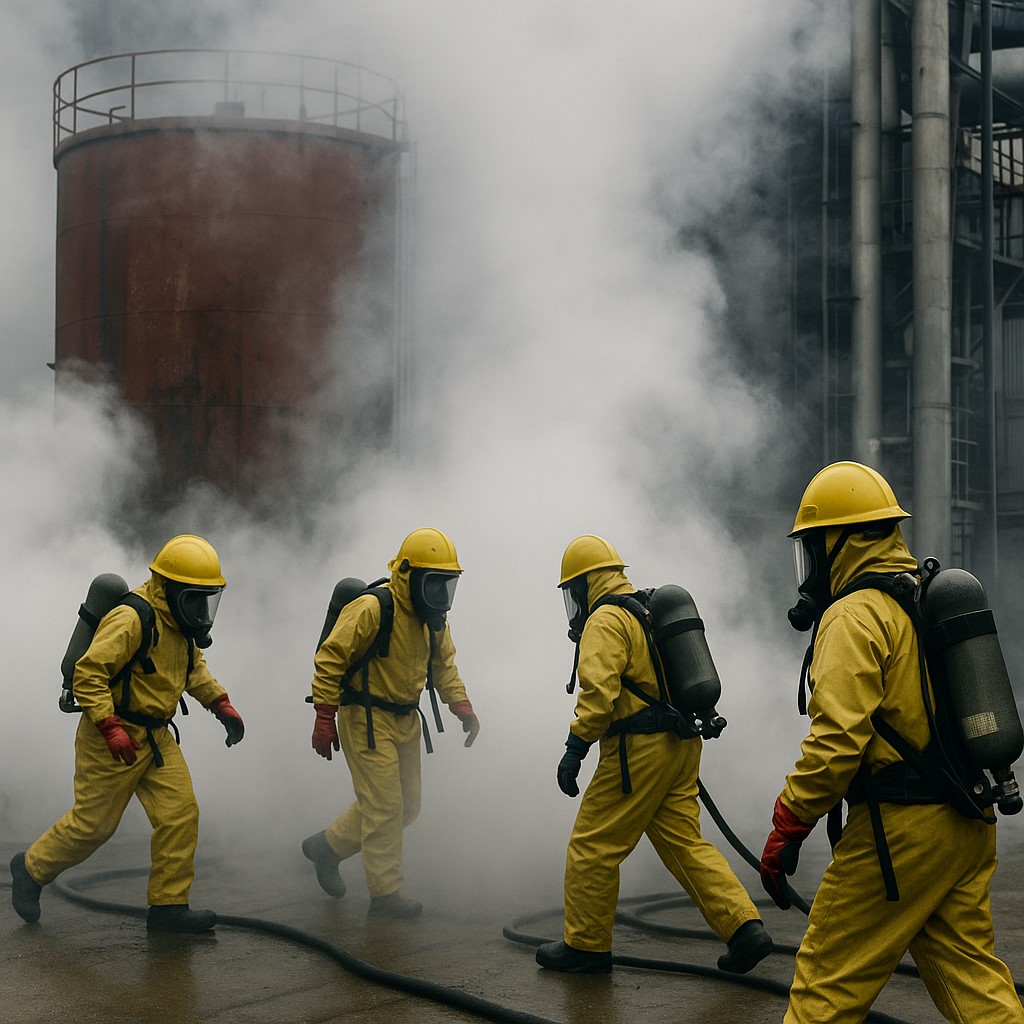
Human Rights Commission Demands Report from Andhra Government on Gas Leak Tragedy

 :
| Updated On: 25-Jun-2025 @ 2:21 pm
:
| Updated On: 25-Jun-2025 @ 2:21 pmSHARE
The National Human Rights Commission (NHRC) of India has taken suo motu cognisance of a tragic gas leak incident that occurred on June 11 in Anakapalli district of Andhra Pradesh, where two employees died and another was critically injured. The gas leak happened at an effluent treatment plant (ETP) of a pharmaceutical company during a night shift, when the workers were conducting routine waste treatment procedures. The gas, suspected to have been released during the treatment process, caused immediate asphyxiation, leading to the deaths and hospitalization.
The NHRC, acting on media reports and without waiting for a formal complaint, took up the case due to the serious nature of the incident and its implications for human rights. The Commission expressed grave concern over possible violations of workers' rights and emphasized that if the contents of the media reports were accurate, they pointed to significant lapses in safety protocols and potential human rights violations.
As part of its intervention, the NHRC has issued notices to the Chief Secretary of Andhra Pradesh and the Superintendent of Police of Anakapalli district. Both officials have been directed to submit a detailed report within two weeks. This report must include an update on the condition of the injured worker, as well as details regarding any compensation or assistance provided to the injured worker and the families of the deceased.
The Commission's move highlights the importance of accountability and transparency, especially in industrial sectors where worker safety is paramount. The NHRC reiterated that the right to life and safe working conditions are fundamental human rights that cannot be compromised, and any lapses must be thoroughly investigated.
This is not the first time Anakapalli has witnessed such an incident. In a similar but separate case in November 2024, a gas leak at a pharmaceutical laboratory in the same district resulted in the death of at least one person and left eight others seriously ill. This earlier incident raises further concerns about recurring safety violations in the area, especially in the pharmaceutical and chemical industry, which handles hazardous materials regularly.
The back-to-back gas leak incidents in the region have drawn criticism and alarm from various quarters, including labor rights activists and environmental groups. Many have demanded stricter enforcement of safety regulations, regular inspections of industrial units, and better training for workers dealing with hazardous substances. The repeated nature of such incidents points to systemic issues in workplace safety and regulatory oversight.
In conclusion, the NHRC's involvement in the June 11 Anakapalli gas leak case underscores the need for urgent action to ensure worker safety and prevent further tragedies. The Commission's demand for a comprehensive report and its recognition of the potential human rights implications reflect its commitment to upholding justice and protecting the lives of vulnerable workers. As investigations proceed, it remains to be seen what corrective measures the Andhra Pradesh government and the involved pharmaceutical companies will implement to prevent such incidents in the future.